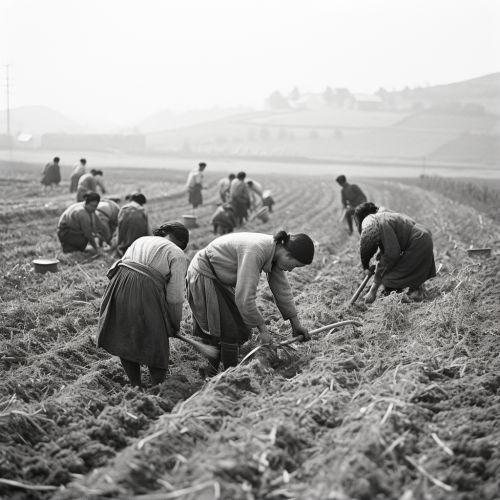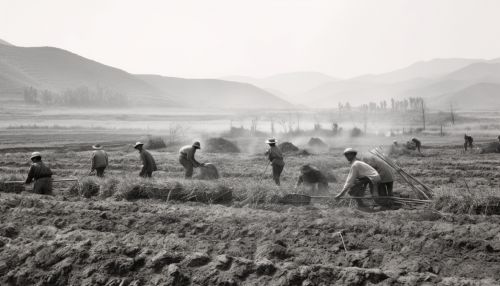Great Leap Forward
Overview
The Great Leap Forward was a socio-economic plan implemented by the Communist Party of China from 1958 to 1962 under the leadership of Mao Zedong. The plan aimed to rapidly transform the country from an agrarian economy into a socialist society through rapid industrialization and collectivization. However, it is widely considered to have caused the Great Chinese Famine.
Background
In the aftermath of the Chinese Civil War, the Communist Party of China, led by Mao Zedong, sought to transform China into a modern socialist state. Inspired by the Soviet model of industrialization, Mao launched the Great Leap Forward, intending to bypass the initial stages of capitalism and move directly to socialism.
Goals
The primary goals of the Great Leap Forward were to increase the industrial and agricultural output. This was to be achieved through the creation of communes, which were essentially large agricultural communities where land and resources were shared. The communes were expected to function as self-sustaining units, producing everything they needed within their own boundaries.
Implementation
The implementation of the Great Leap Forward was marked by high levels of enthusiasm and mobilization. Millions of peasants were mobilized to work on large-scale infrastructure projects and in the production of steel and other industrial goods. The communes were organized into production brigades and teams, and the concept of "backyard furnaces" was introduced, where families were encouraged to produce steel in their own homes.


Consequences
The Great Leap Forward resulted in significant economic disruption. The focus on heavy industry and infrastructure often came at the expense of necessary agricultural production, leading to widespread food shortages. This, coupled with poor weather conditions and a series of policy missteps, led to the Great Chinese Famine, in which millions of people died of starvation.
Criticism and Legacy
The Great Leap Forward has been widely criticized for its policies and its resulting human cost. It is often cited as an example of the dangers of rapid and forced collectivization and industrialization. Despite the catastrophic consequences, the Great Leap Forward had a lasting impact on China's development and continues to influence Chinese policy and society today.
